|
Ricky is a delightful Blue and Gold Macaw. Ricky is 28 years young so at this point he is only halfway through his potential lifespan. He had a great family that absolutely adored him and he only had that one family. Ricky is very curious and loves to run around and affectionately we say he likes to get into trouble, but most of this is only out of his absolute curiosity for everything around him. He’s a very animated parrot who loves nothing more than to dance and attempt to sing with his person, his special person. He’s very charismatic. One of his big loves is absolutely to destroy a toy. He loves to forage he loves to find his treats and his favourite foods amongst a box of cardboard with different items placed inside. He will-amuse himself and carry on as though he’s talking to the box which can only help make you giggle. He does spend very active and engaging times of the day with his people, but he also will settle and just enjoy some quiet attention. Ricky is the kind of bird that needs; a home that wants a character to live with them who will engage him in activities, who wants a parrot to very much be active! Ricky can be very loud at times but after all, he is macaw, a big bird with a big voice, but those times aren’t very long durations. He will vocalize he loves to get attention but once he is settled into an activity he is a relatively quiet guy , Ricky is looking for a home where he will be part of activities and fun and engaged with the people. He very much knows how to entertain himself with objects, and so he will need things to do when he is in his cage, or on a stand on his own, but this guy keep you all smiles for many many years to come. Ricky is an absolute joy a little bananas but after all, he’s a parrot and a great one at that! Genus: Ara | Species: ararauna Size: 86 cm (33.5 in) Weight: 1040-1286g (36.4-45 oz) Subspecies including nominate: one Colour Adult: Both adults bright blue above, mostly golden-yellow below; with long blue and yellow tail; bare white facial disc with fine lines of green feathers; throat black; crown and forehead green. Large black/grey bill. Eye yellow. Colour Juvenile: As in adult but with grey/brown eye. Call: Loud raucous calls, some harsh. Most calls gutteral with varying sounds. Listen Now Video Links: Video 1 | Video 2 | Video 3 More Information: Avibase Find out more about Blue-and-Gold Macaws from Lafeber Company by clicking the image below... Find out more about Ricky from The Parrot Sanctuary
Day 11 of the 12 Adoptable Pets of the Holiday Season...Abraham & Jasper From Annex Cat Rescue!12/23/2023 Abe is a very shy and sweet orange boy. He doesn't like to be touched, and doesn't like it when a human gets too close to him. Abe hisses a lot, but never swats or scratches. Abraham loves to play and wrestle with his brother Jasper, and is happiest when they are left alone together. But he will tolerate being in the same room as a human as long as they don't come too close. He likes using a tall scratching post. Jasper (black) and Abraham (orange) are senior brothers who lived in a managed feral colony, among the "Simpsons seniors" cats.va.media.tumblr.com/tumblr_rvraj4PAfj1qaimww_720.mp4 They are a bonded pair who must be adopted together. They adore each other, and love to wrestle and play. They are also okay with other cats. We don't know how they would be with dogs. They hide from children and strangers. Jasper and Abraham are very shy, and still being socialized, after 14 months of living with their foster mom. Both boys are very quiet, but will chatter a lot among themselves when left alone to play. They are both toothless, and can eat dry and wet food. They are healthy, though prone to over-eating. They are playful, good about using a scratching post, and have excellent litter box habits. Abraham must be adopted with Jasper. Video: Abe eating Churu https://va.media.tumblr.com/tumblr_rvraj4PAfj1qaimww_720.mp4 Jasper is a very handsome and quiet black cat. He is shy around new people, but a lot more outgoing than his brother. He loves playing with small balls and batting toys, and using flat scratching pads on the floor. Jasper will sometimes tolerate being gently petted on the head. He will give a warning swat when he's had enough, but rarely uses his claws. Over the last 14 months, Jasper has warmed up a lot to people, and with the right owner and a lot of patience, he might one day be a cuddler. Jasper (black) and Abraham (orange) are senior brothers who lived in a managed feral colony, among the "Simpsons seniors" cats. They are a bonded pair who must be adopted together. They adore each other, and love to wrestle and play. They are also okay with other cats. We don't know how they would be with dogs. They hide from children and strangers. Jasper and Abraham are very shy, and still being socialized, after 14 months of living with their foster mom. Both boys are very quiet, but will chatter a lot among themselves when left alone to play. They are both toothless, and can eat dry and wet food. They are healthy, though prone to over-eating. They are playful, good about using a scratching post, and have excellent litter box habits. Jasper must be adopted with Abraham. Video: Abe and Jasper cuddling https://va.media.tumblr.com/tumblr_rvranazLfb1qaimww_720.mp4 Find more information on Abraham & Jasper from the Annex Cat Rescue!
About Angus I'm an adult male albino paradox ball python and I'm available for you to adopt me today! I require a minimum of a 75 gallon enclosure to live in. My adoption fee is $120
Good with Adults, Hypoallergenic, Apartment OK, Prefers warm climate, Needs special care, Timid, Even-tempered, Not good with small dogs Click here to find out more about Angus from Little RES Q!
Muff (aka Muffin aka Muffin Puffin) is a dainty, pretty muted tortoiseshell kitten with a fiery spirit and lots of intelligence. She is very athletic (jumps high after a crinkle ball) and loves to play, but also likes her space and engages with others at her own pace. Muff is started out as a very skittish, shy kitten who wouldn't allow us to touch her, but has come around to being a real sweetie who accepts and even seeks out petting/tummy rubs. She still has her limits and can switch from pet to playfight mode very quickly, but she never ever has her claws out. She loves interactive play (wand toys, crinkle balls tossed high and far) and hanging out with people, and you will hear her purr her happiness. The ultimate drama queen, Muff has an unforgettable plaintive meow that she uses if left alone too long-- you may come running thinking there's a disaster, but she is only (loudly) letting you know that she needs company/playtime. Muff gets along with other cats, but she can do well as a solo cat if she gets a lot of playtime. Muff likes her space and can retreat if there's too much activity in the home, so she would do best in a home without young children or rough/rowdy cats. Muff has been diagnosed with a heart murmur and may need additional yearly vet visits to monitor her condition, but this doesn't slow her down from being the active, healthy and wonderful kitten that she is. If you are interested in adopting Muff, our adoption team will be happy to discuss this with you further. Contact the Annex Cat Rescue to Adopt Muff
From Marie-Elisabeth Parrot Sanctuary: Dolce is a young 2 year old Monk Parakeet (also known as Quaker Parrot). We aren’t sure of Dolce’s gender. This little one has had a hard start in life but has bloomed into the cutest, funny little one who is very social and friendly. Dolce loves nothing more than to hang out on someones head, shoulders or hands and watch whatever his person is doing. Dolce is very curious! When Dolce is out of his cage he likes to investigate everything and particularly likes to walk around on the floor. We encourage him to stay off the floor to avoid accidents but he is very determined to look into any area he has access to. Dolce is a little social butterfly and may do very well with another bird compatible in size and friendly gently demeanour. Do keep an open mind about this sensitive little bird, although Dolce has a recent history of feather damage, with a loving family or individual she/he will continue to thrive in an enriched environment! Dolce’s story (from the young lady who fostered him after he was brought to a city shelter): Dolce was surrendered to a local animal shelter in August with a blood soaked bandana stuck to his neck. But Dolce’s story began in January when his owners abandoned him and another bird with a pet sitter. The pet sitter, not knowing what to do, kept the birds in their home but then Dolce began plucking due to stress. They brought him to the vet who recommended putting a cone on him, but this did not go over well with Dolce. He became even more stressed and began to destroy the cone and started hurting himself. This is when the pet sitter reached out to the local animal shelter for help. Once at the shelter, the damage to his neck was assessed and he was immediately sent to the vet. Dolce’s neck was so bad that he required stitches to close him up. Once he returned from the vet he was placed in a foster home where he required daily bandage changes. At first, he was incredibly stressed and would try to hurt himself at any chance. After a few days and many different types of neck guards, Dolce and the foster finally found something that worked and he began to settle in. His sutures were removed and he was finally able to not wear any kind of guard around his neck. Today, Dolce is a happy guy who has not plucked in weeks. He has such a silly personality and loves to listen to music and hang out with his favourite person. He is a one-person kind of bird but we are working on his social skills. He is a really special bird who has come such a long way from the bird who had to be soaked in order to remove his bloody bandana that was stuck to his neck. Species Care and info for Cliff Parakeets (from the World Parrot Trust site) Captive Status: Common Longevity: Up to 25 yrs. Housing: Aviary or suspended enclosure, minimum length 3m (9.8 ft). Diet: Fruit such as: apple, pear, orange, cactus fruits, pomegranate, etc, forming about 30 percent of the diet; vegetables such as: carrot, celery, green beans and peas, corn; green leaves such as: Swiss chard, lettuce, sowthistle, dandelion, chickweed; spray millet; small seed mixture: canary, millet, safflower and limited sunflower seed; cooked beans or pulses and complete pellet. Enrichment: Socialization, bathing; provide nest building materials, puzzle toys, bird safe chewables (fir, pine, elder, willow, sterilized pine cones, vegetable tanned leather). Nest Box Size: This species nests in colonies. Provide a welded mesh base and a large supply of twigs, from which the pairs will build their nests. Nest boxes may be used (vertical box, 12" x 12" x 18" (30.5cm x 30.5cm x 46cm). Clutch Size: 5-7 Incubation Time: 23-24 days Fledging Age: 6-7 weeks Hatch Weight: 5g (0.17 oz) (wild) Peak Weight: 110-120g (3.8-4.2 oz) (wild) Weaning Weight: Around 100g (3.5 oz) (wild) Specialist Club: Quaker Parakeet Society - Facebook Find out more about Quaker Parakeets from Lafeber Company by clicking the image below... Find out more about Dolce From the Parrot Sanctuary!
|
AuthorRegan is a certified Canine Massage Therapist (CCMT), has certification in First Aid and CPR for Pets, and some beginner training in Herbal Remedies and Aromatherapy for personal use. Archives
July 2024
Categories |




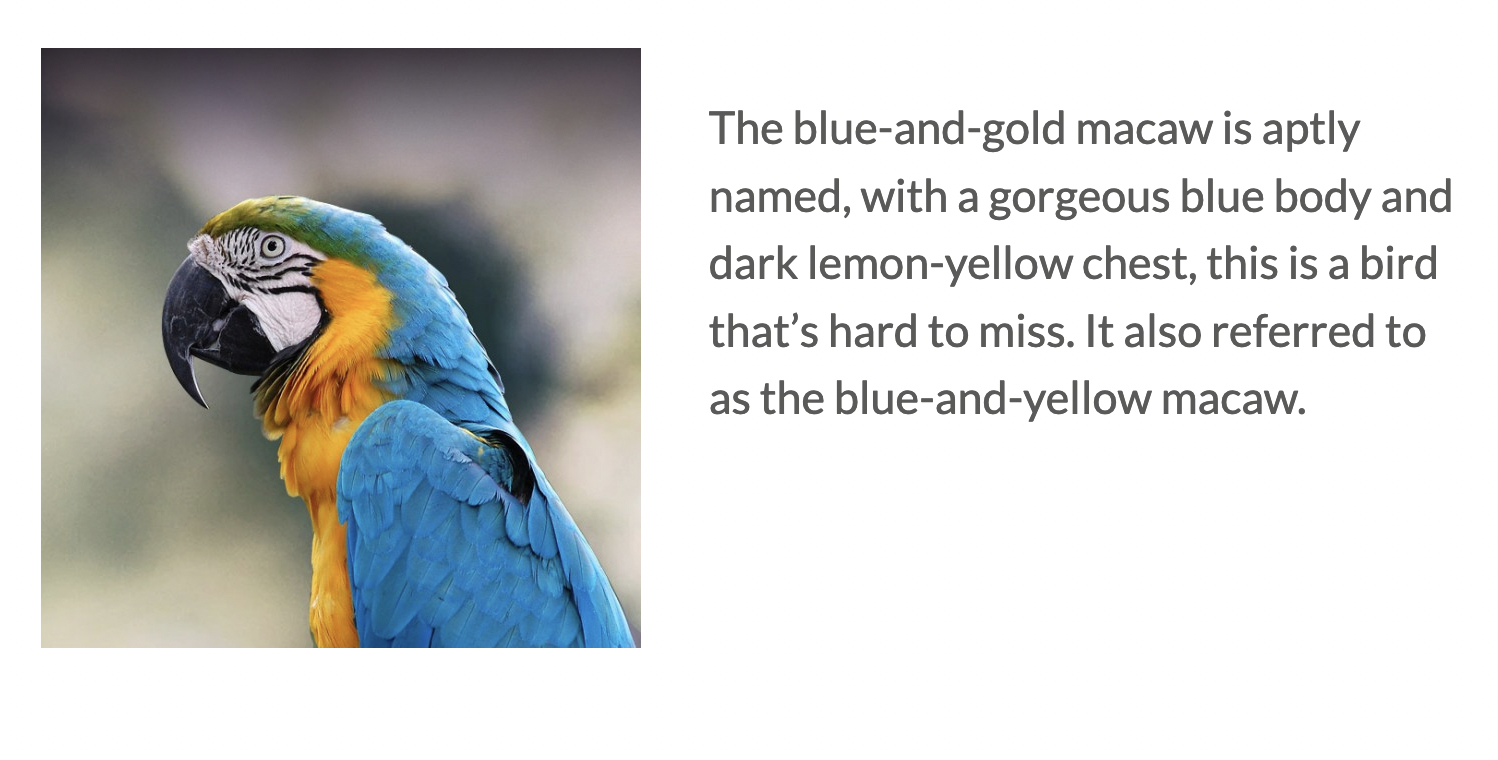
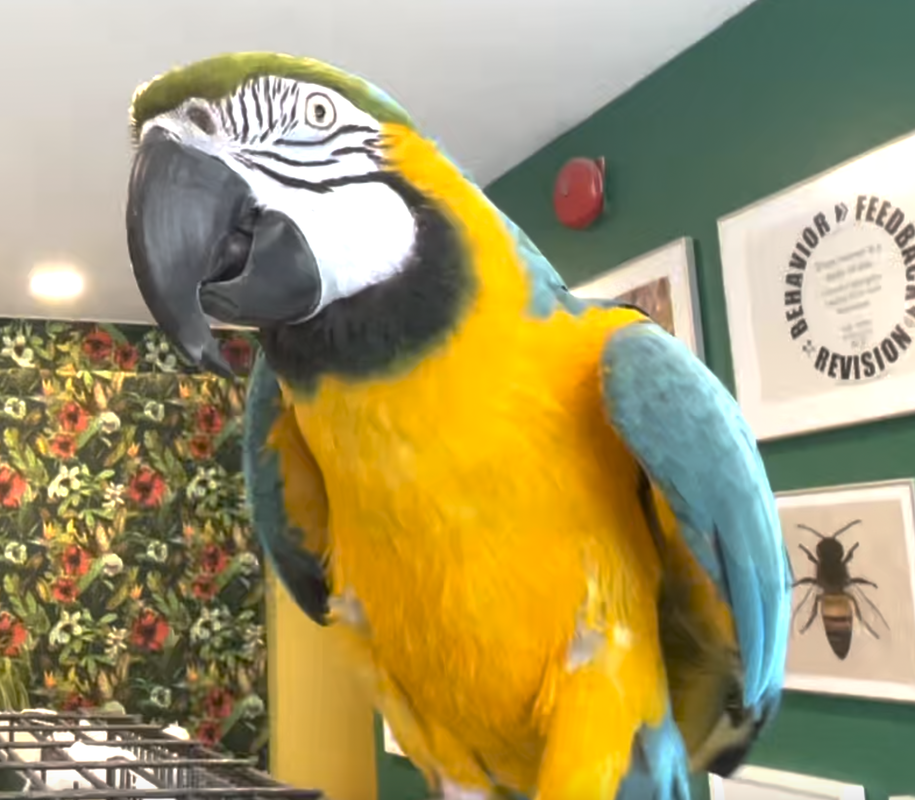
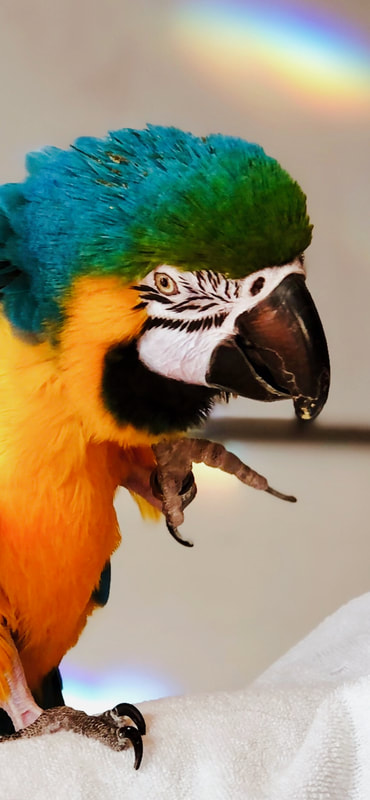
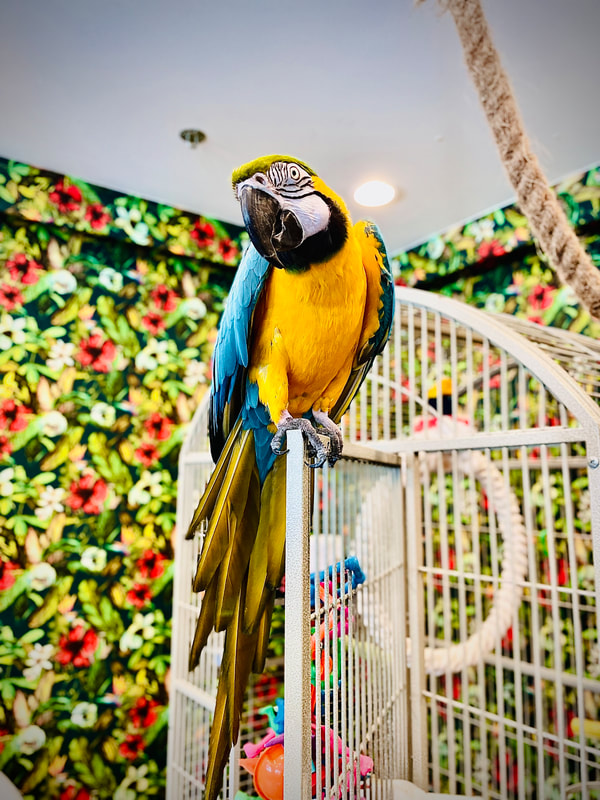
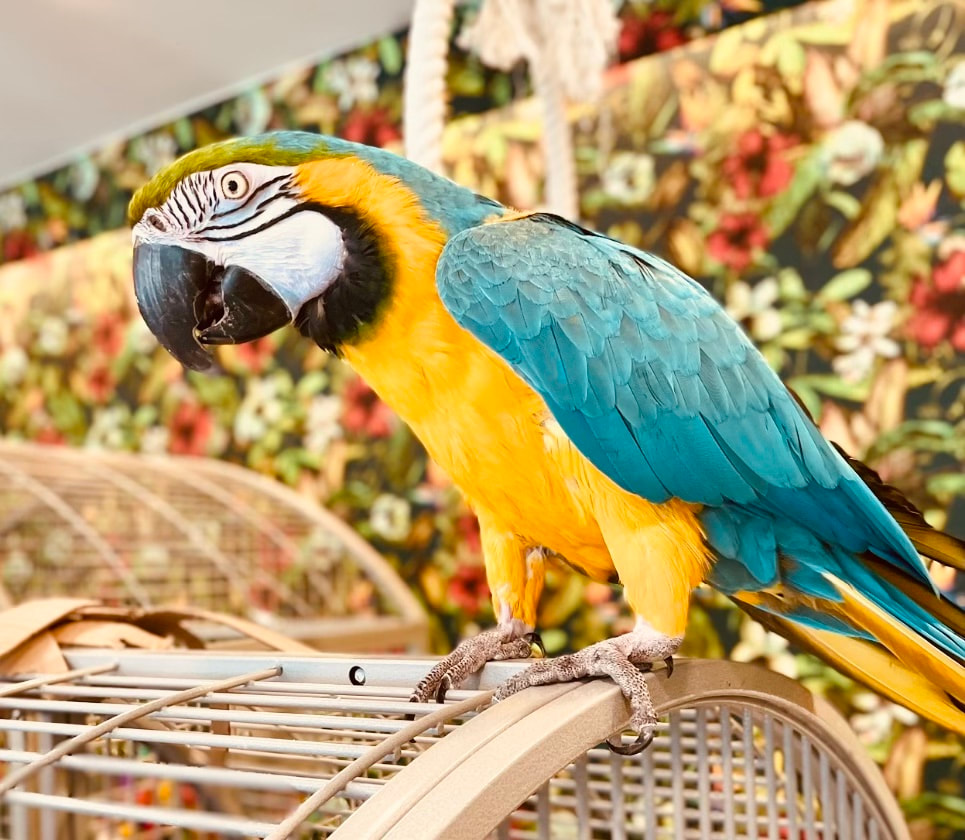
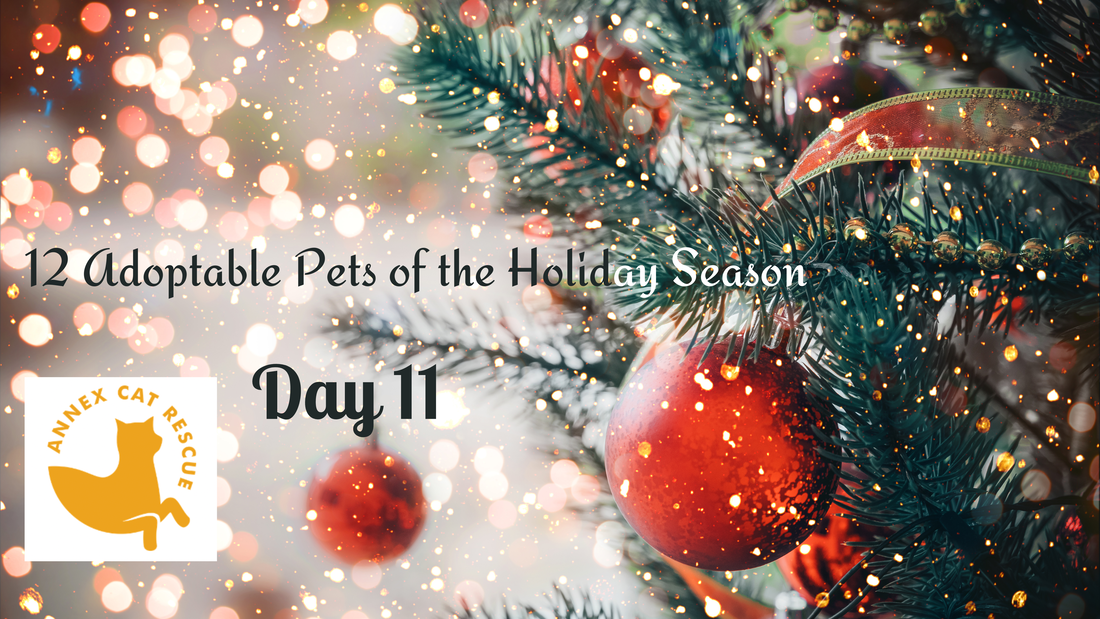
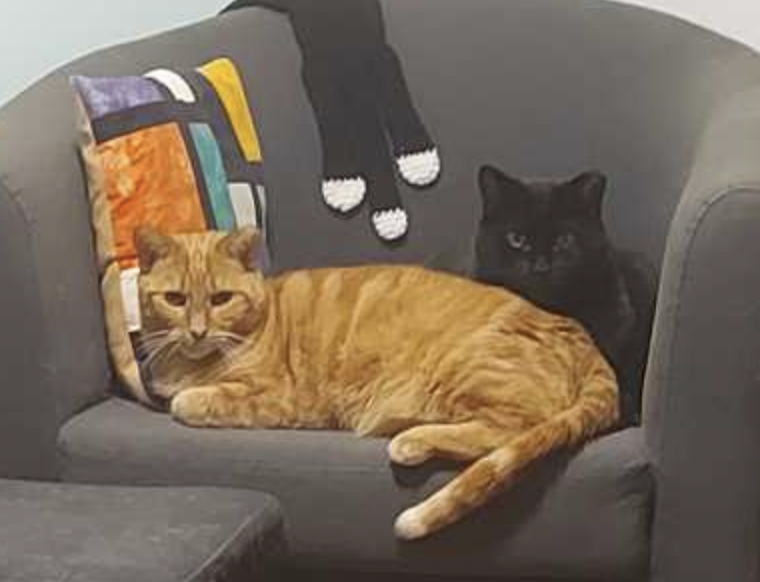
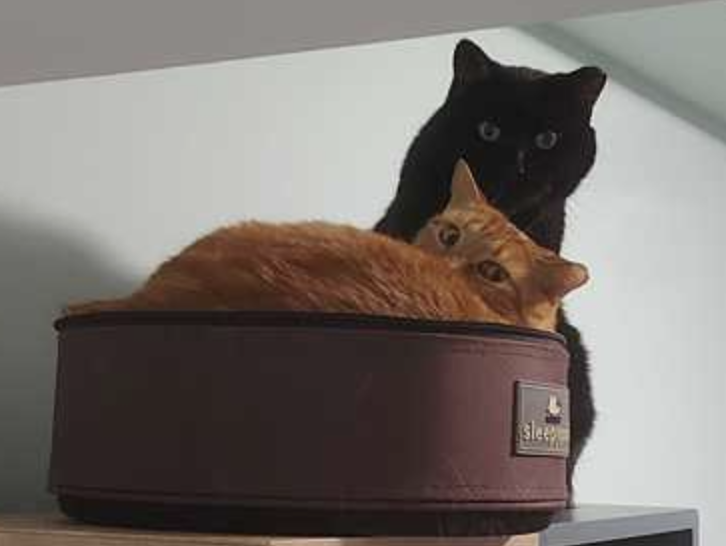
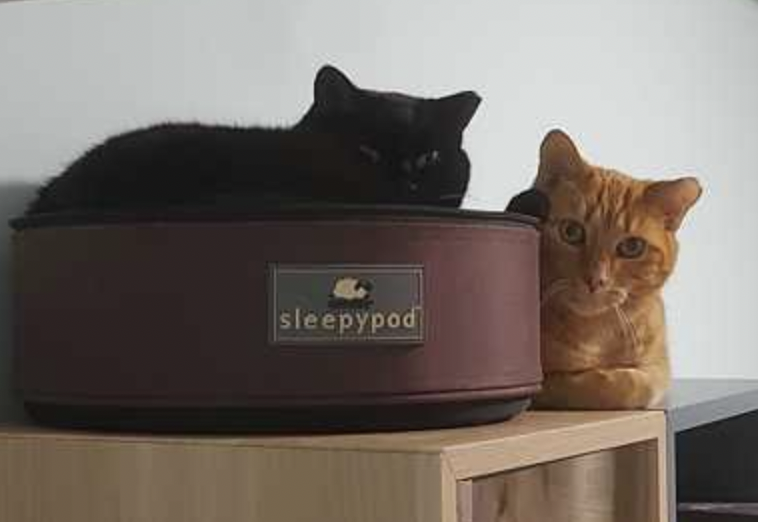
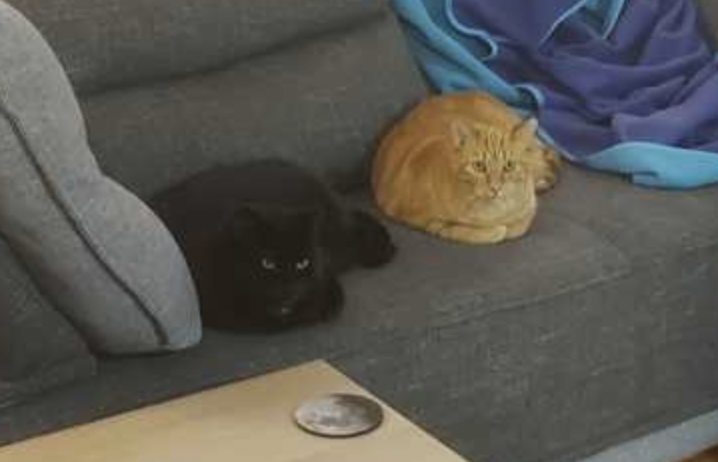
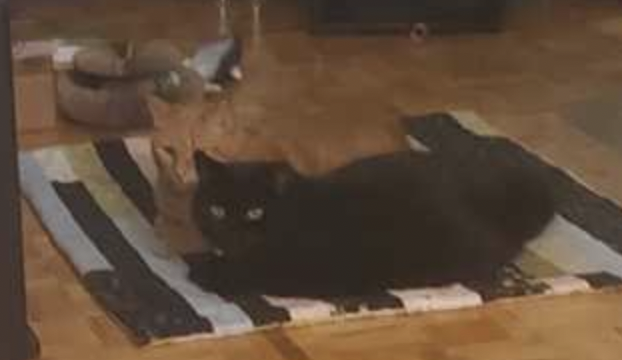
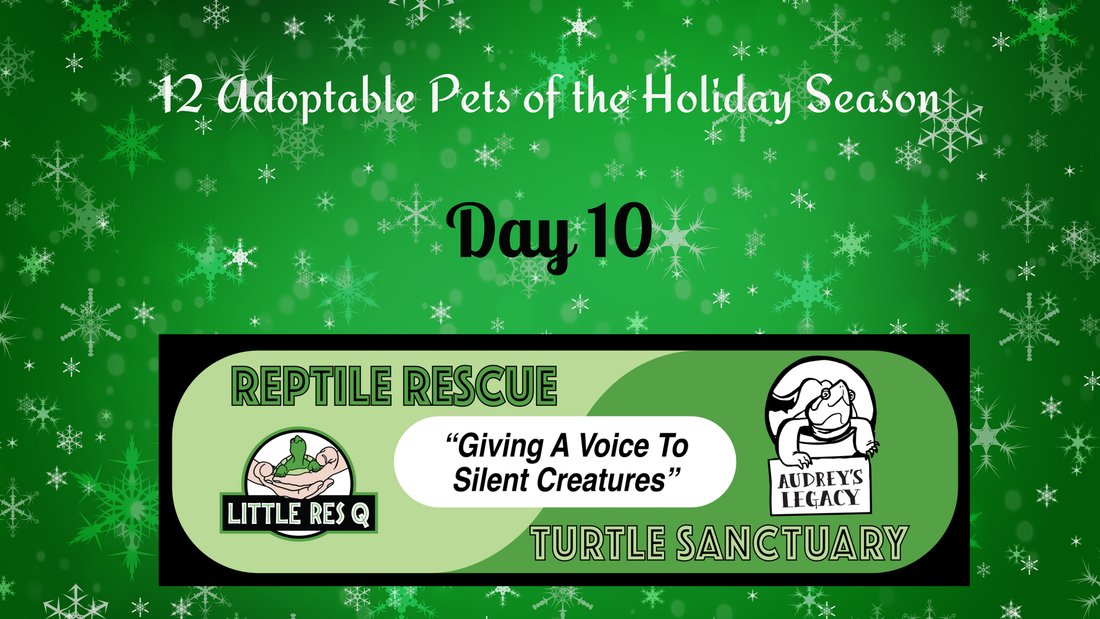
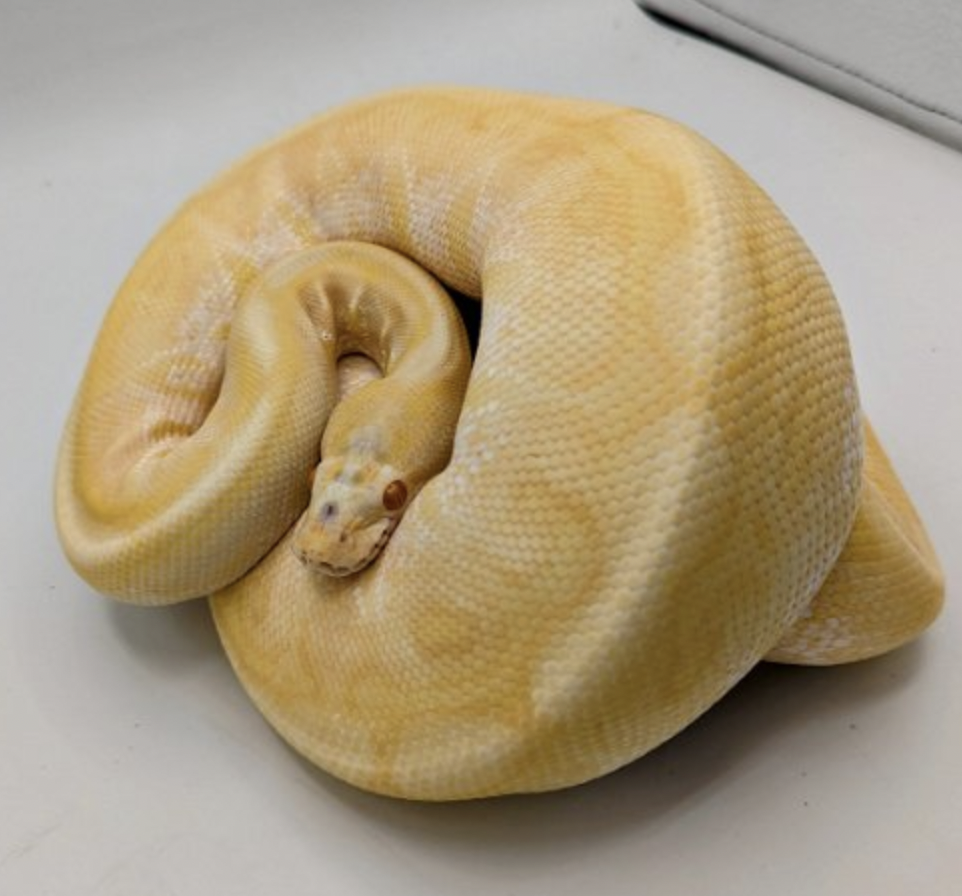
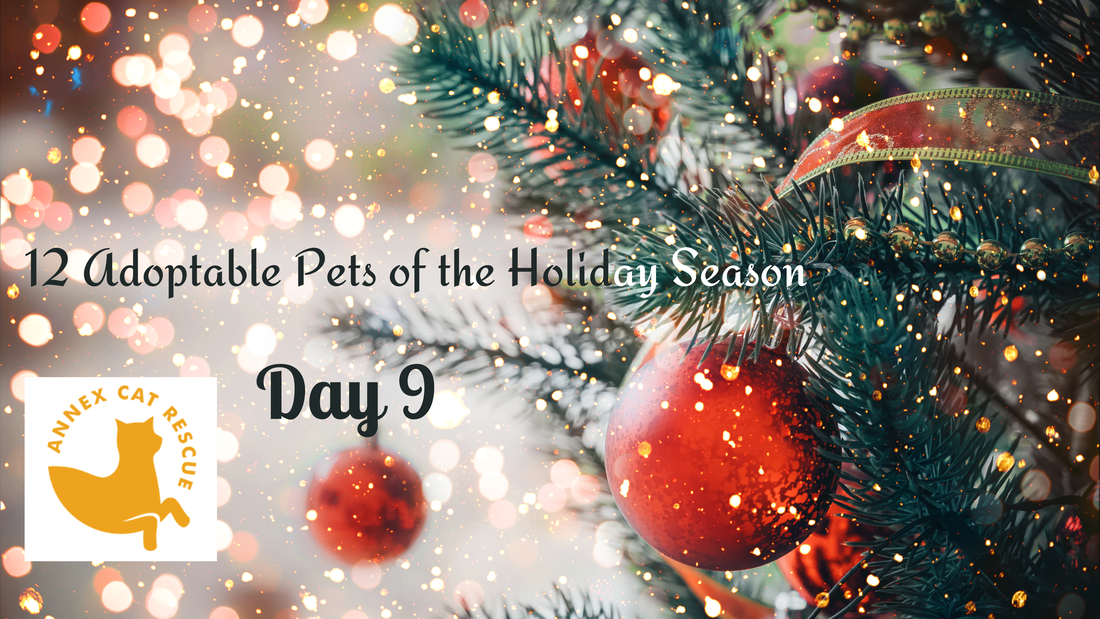
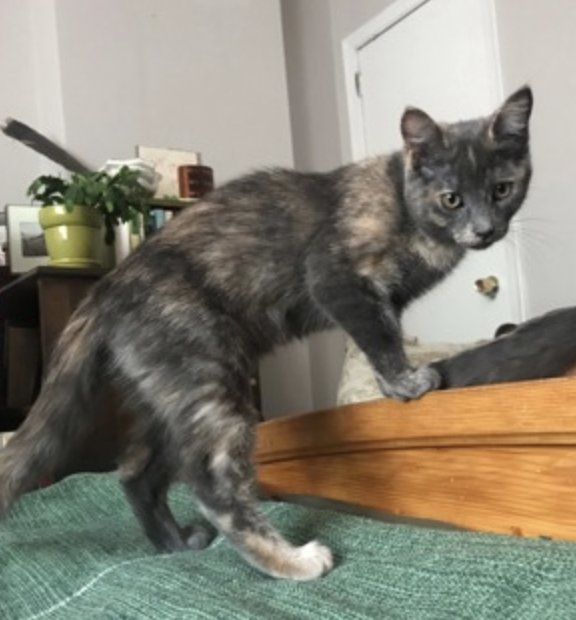
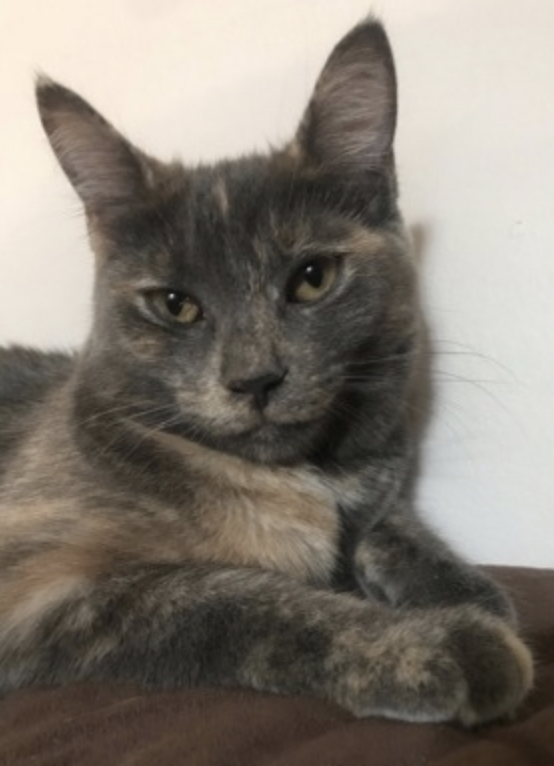
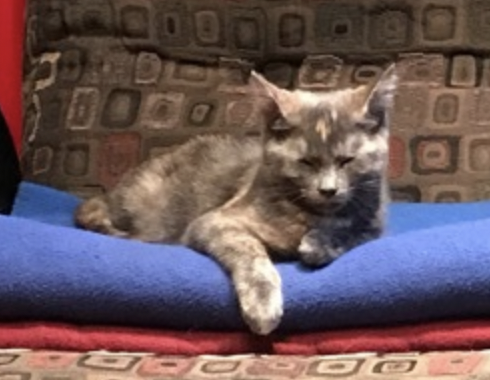

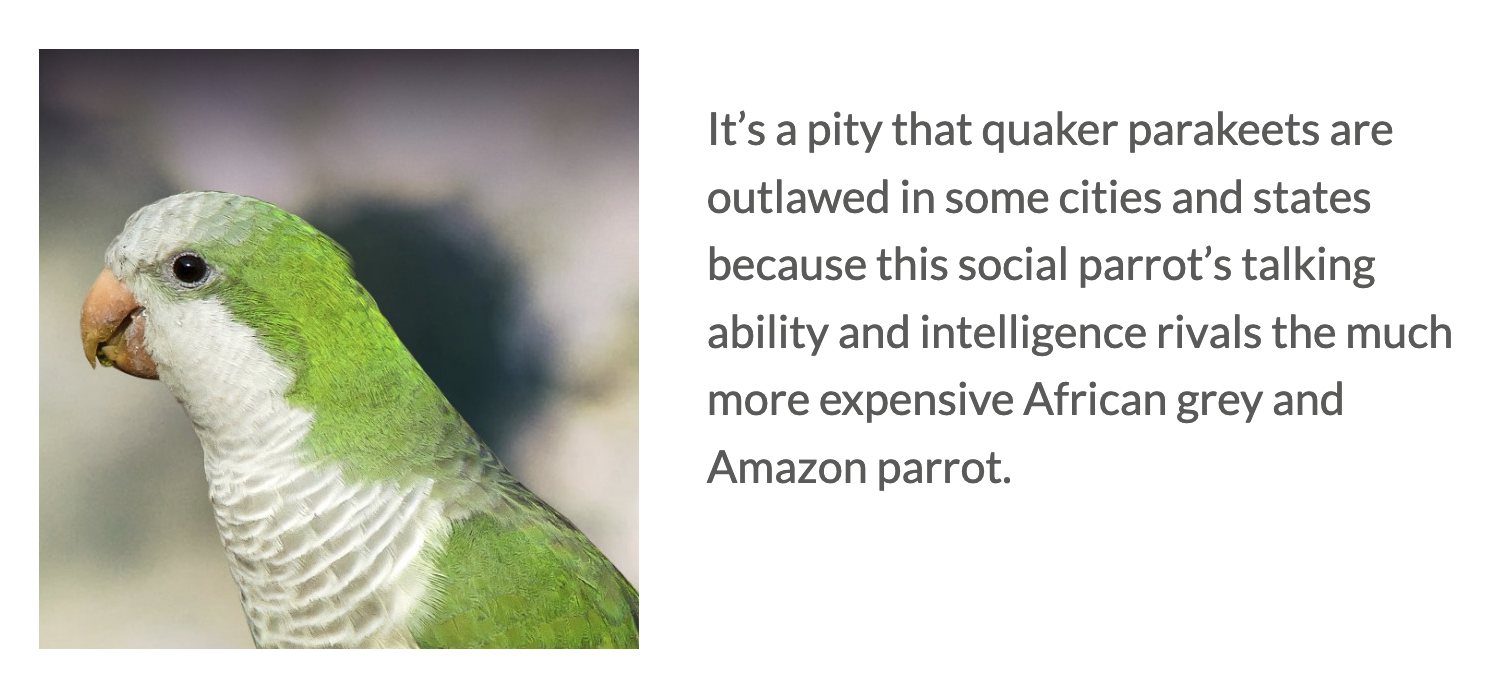
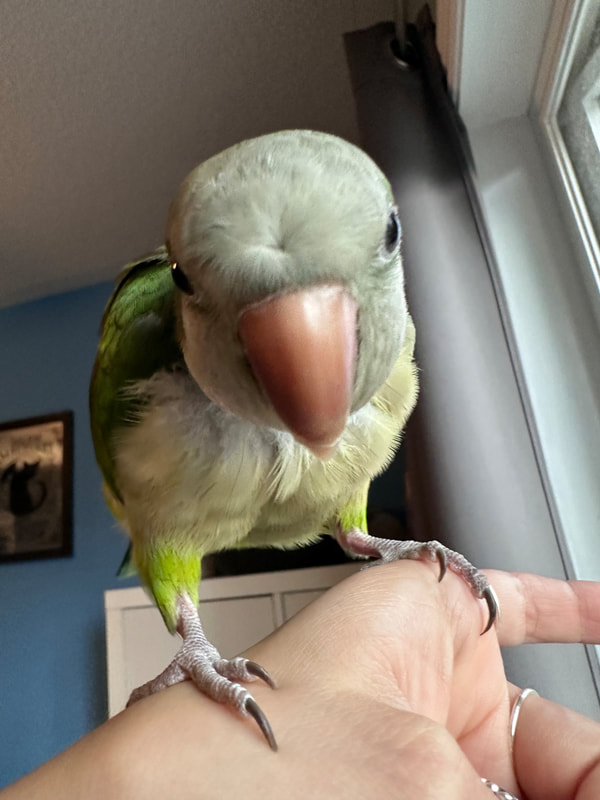
 RSS Feed
RSS Feed